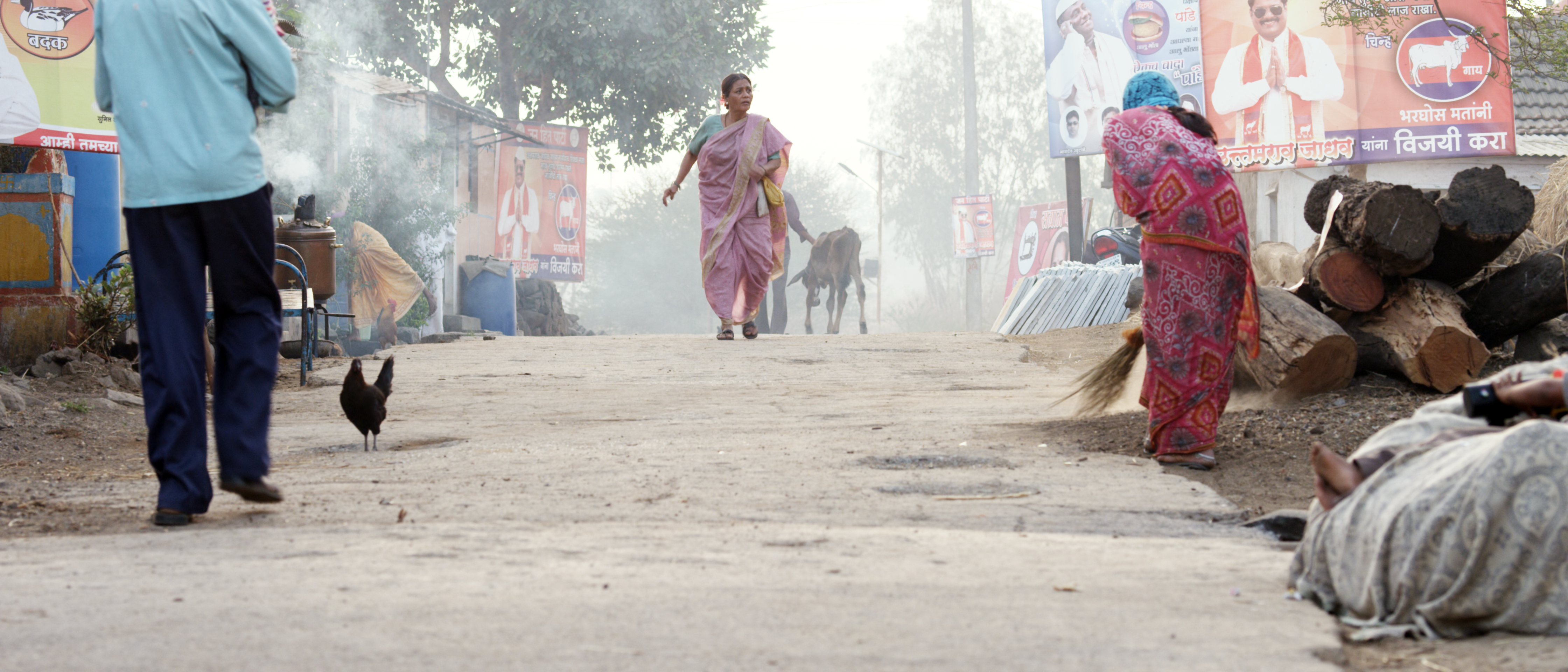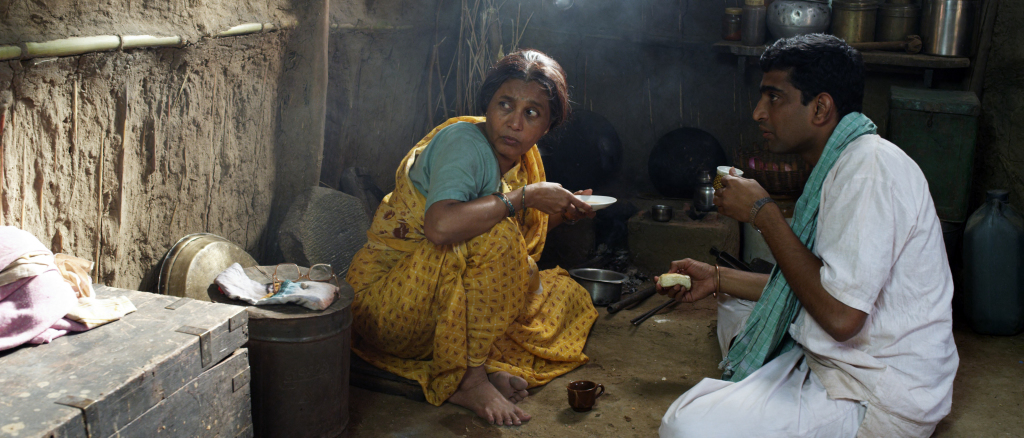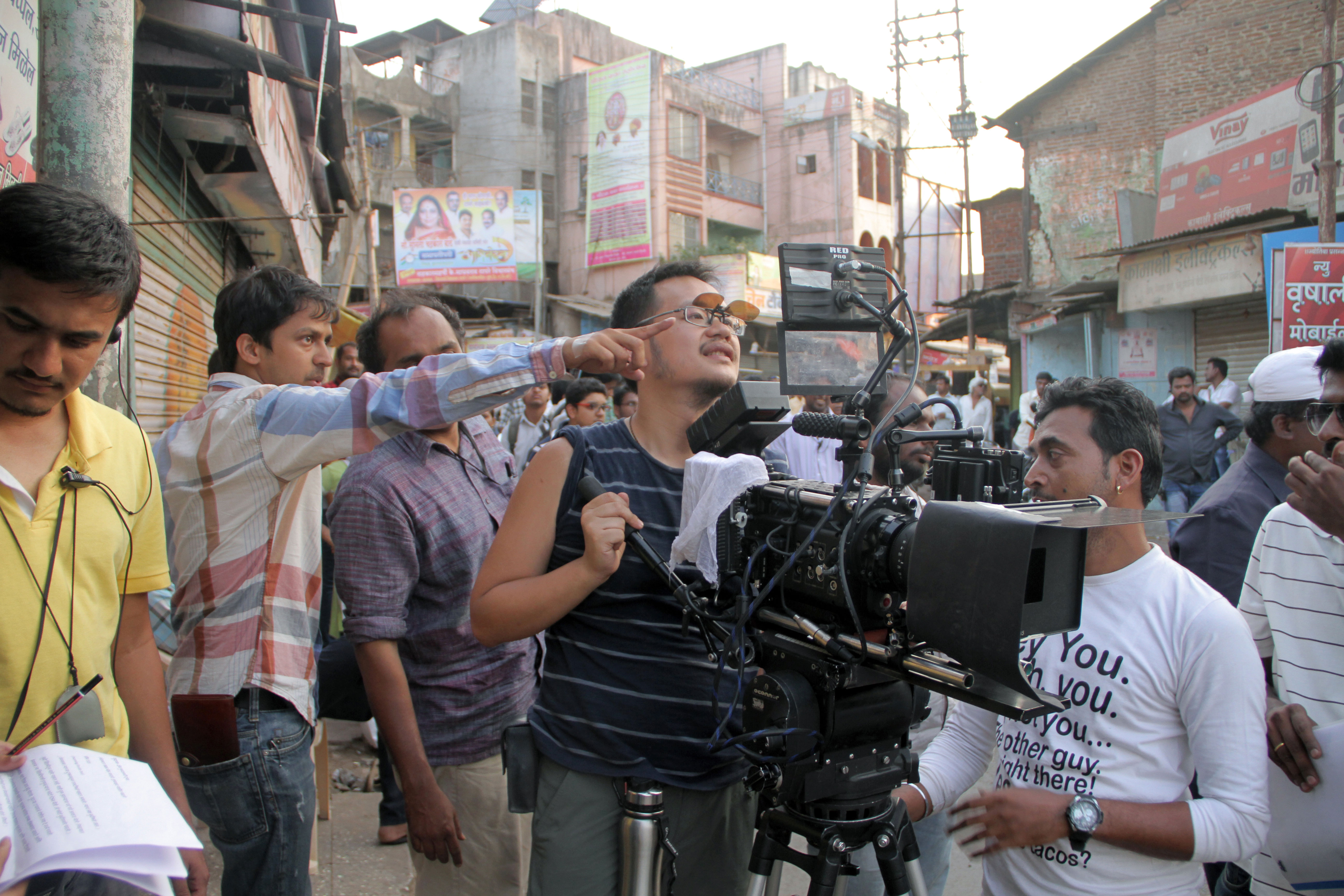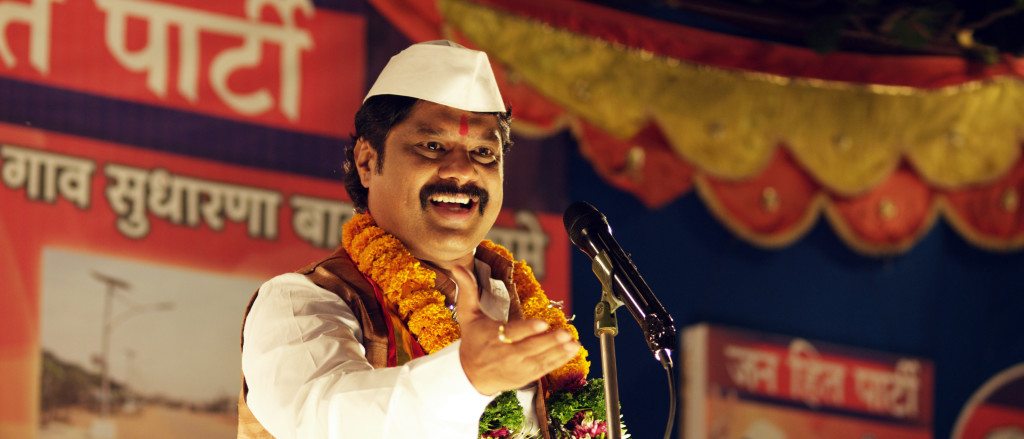1000 Rupee Note – The Cost of Being Human

[dropcap]R[/dropcap]emarkable things often come in small, unassuming packages. Such is the case with 1000 Rupee Note (Ek Hazaarchi Note). Far from the 3 hour plus Bollywood extravaganzas, this little film is just 89 minutes but it packs a punch. It is in Marathi and set in small-town India where both lives and dreams are modest. Budhi is a widow who has lost her only son, a farmer, to suicide – the story of so many hapless strugglers in rural India.
Budhi ekes out a meager living as a household help and lives a joyful life in circumstances which others would regard as absolutely joyless. Her only saving grace is Suddhama, a young neighbor who is like a surrogate son. When she attends a political rally and is given a 1000 rupee note by a politician, life changes dramatically as we see today’s India, warts and all.
This simple film, almost a morality play about modern India, will hook you till the end credits roll on – and will make you think for quite a while after that.
Some remarkable performances from the lead actress Usha Naik and the supporting cast and you will forget the language is Marathi (which many of us don’t speak), so engrossing is the narrative.
The film has won over 35 awards at various film festivals including the Special Jury Award (Silver Peacock) and Centenary Award for Best Film at the International Film Festival of India. It also swept the Maharashtra State Film Awards winning Best Film, Best Director, Best Actress (Special Mention), and Best Supporting Actor.

[dropcap]T[/dropcap]he director of this film is Shrihari Sathe, a New York and Mumbai-based independent filmmaker and producer. Sathe produced Eliza Hittman’s It Felt Like Love which world premiered at 2013 Sundance Film Festival and 2013 International Film Festival Rotterdam to great reviews. He is a 2015 Independent Spirit Award nominee and is a 2013 Sundance Institute Creative Producing Fellow. Sathe’s latest production Elisabeth Subrin’s A Woman, A Part world premiered at 2016 IFF Rotterdam. He recently finished post-production on Ed Blythe’s Man With Van (2011 Film Independent Producers Lab). Sathe teaches at Columbia University’s School of the Arts.
The film is your chance to see the trials and triumphs of little lives in forgotten outposts of India – and to regain the knowledge that money isn’t everything. We do know this truth but tend to forget it time and again.

Face to Face with Filmmaker Shrihari Sathe
After having worked abroad on so many films, why did you choose to spotlight rural India in your first film?
While producing feature films in the US and short films internationally I was on the look out for a project for me to direct. I’d met Shrikant Bojewar through a mutual friend and we were developing a couple scripts when I read his short story for what ultimately became 1000 Rupee Note (Ek Hazarachi Note). I thought the characters were a great representation of contemporary rural India. It seemed like the perfect film to make my directorial debut.
The film does not seem to have any of the trappings of commercial cinema and yet it entertains and makes you care about the lives of the protagonists – why is that?
While developing the film and while filming I wanted the audience to experience the world of the film as if they were right next to the characters instead of observing them from afar. I was able to create this atmosphere with my very talented collaborators – Ming Kai Leung (Cinematographer), Shailendra Barve (music) and Thorsten Minning (Sound Designer). Shrikant Bojewar’s dialogues and the circumstances the characters find themselves entertain the audience while providing an underlying social commerntary.
How important is this story to you and why do you feel it’s necessary to share it with worldwide audiences?
The film is about corruption at the most basic level. Its something that happens all over the world but we usually only hear of scams that are millions of dollars. I believe that Budhi’s ability to be reselient despite having hardships is a good resemblence to the women of rural India who provide for their families and find happiness in small things in life. The film is made of universal emotions though set in a specific region of India.
For you what are the challenges of being a filmmaker living on two continents? What are the plus points?
I’m working both in India and US, so due to the totally opposite time-zones I’m pretty much working all the time and have to keep a pulse on what’s going on in both entertainment industries. It’s exciting to be able to create content and tell stories about very different experiences and from different perspectives.

Was raising money for this film difficult?
Raising money for independent film is always challenging be it here in the US or in India. Since the film is not in a traditional “Bollywood” it was a bit tough to raise the money. I’m hoping due to the success of 1000 Rupee Note (Ek Hazarachi Note), raising money for my next project is not as tough.
Why do you think this film has hit such a nerve with audiences everywhere?
Even though the film is set in a specific milieu the emotions of the characters are quite universal. We’ve screened the film in over 10 countries over the last couple of years and I think it’s one of the reason audiences around the world are connecting to the themes in the film. People from different strata of society are able to understand and connect to Budhi’s emotional space even if they personally haven’t been affected by such tragedy or being caught up in dubious circumstances.
Finally, did you ever think of changing the ending and the outcome?
Shrikant and I developed the script for little over a year but the ending of the film was always what is in the film. We wrote and rewrote how Budhi and Sudama get to that ending.
What’s next for you and how do you mix it all with teaching at the Columbia School of the Arts?
I’m an adjunct assistant professor and production advisor at Columbia University’s School of the Arts so basically am on a semester schedule but the best thing is that the university wants it’s faculty to be working professionals so the adjunct faculty has some flexibility on the schedules. I’m developing my 2nd feature as director with my screenwriter Shrikant Bojewar. We’re currently raising funds for the film, it’s currently titled Goodbye Mr. Kanay. We plan to shoot in India sometime next year. Along with this I have 2 other feature films that I’m producing – Bassam Jarbawi’s Arabic language film Mafak (Screwdriver) which will shoot in Palestine and Ritu Sarin and Tenzing Sonam’s The Sweet Requiem which will shoot in India.

4 Comments
via India Community on Google
Prab +1’d
Samved Iyer +1’d
Soniya Niya +1’d
So glad you liked it Avu!
Awesome Post you have shared with us !!!
Super post !!!
Keep Updating like this to us !!!!